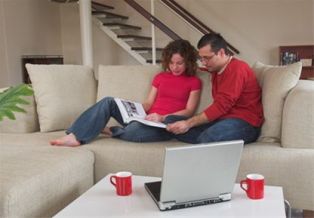FUTURE
SIMPLE
1.
Present
Continuous as Future: minden el van
tervezve és le is van szervezve, beírtad a naptárba,
hacsak nem jön közbe valami rajtunk
kívülálló dolog, akkor be fog következni
biztosan.
Két
szóval: ’planned’ (eltervezett) és
’arranged’ (leszervezett)
Going
to: eldöntötted, el
határoztad, hogy mit fogsz csinálni, a szóban
forgó cselekvés tehát egy terv, egy
szándék, de még nincs leszervezve, tehát nem
biztos, hogy a terv meg is valósul majd.
Egy szóval:
csak ’planned ’ (eltervezett)
A Future Simple
pedig olyan cselekvésekre, eseményekre vonatkozik, amiket
nem terveztünk el előre, ebből kifolyólag le se
szerveztük. A beszéd pillanatában találjuk ki,
döntjük el, hogy mit fogunk csinálni, mi lesz.
Present
Continuous:
I’m playing tennis next Friday. – Teniszezni fogok jövő pénteken.
I’m playing tennis next Friday. – Teniszezni fogok jövő pénteken.
Going
to:
I’m going to play tennis next Friday. – Teniszezni fogok pénteken.
I’m going to play tennis next Friday. – Teniszezni fogok pénteken.
Future
Simple:
I will play tennis next Friday! – teniszezni fogok pénteken.
I will play tennis next Friday! – teniszezni fogok pénteken.
’What will you have, Sir?’ ’I’ll have
chicken.’– ‘Mit fog enni
uram?’ ‘Csirkét fogok enni.’
2.
A következő
esetekben is ezt kell használnod:
1. ha ajánlatot teszel:
That bag looks heavy. I’ll help you. – Nehéznek tűnik a táskád. Majd én segítek neked!
1. ha ajánlatot teszel:
That bag looks heavy. I’ll help you. – Nehéznek tűnik a táskád. Majd én segítek neked!
2.
ha egyetértesz valamiben:
’I need my English book.’ ’I’ll give itt o you this afternoon.’ – ’Szükségem van az angol könyvemre.’ ’Odaadom ma délután.’
’I need my English book.’ ’I’ll give itt o you this afternoon.’ – ’Szükségem van az angol könyvemre.’ ’Odaadom ma délután.’
3.
igéreteknél:
’Thanks for lending me the money. I'll pay you back on Friday.’ ’ I won't tell anyone what happened.’ – Köszönöm, hogy kölcsönadtad a pénzt. Vissza fogom fizetni pénteken. Nem fogom elmondani senkinek, hogy mi történt!
’Thanks for lending me the money. I'll pay you back on Friday.’ ’ I won't tell anyone what happened.’ – Köszönöm, hogy kölcsönadtad a pénzt. Vissza fogom fizetni pénteken. Nem fogom elmondani senkinek, hogy mi történt!
4.
a következőkkel is Future Simple-t használunk
általában:
probably: I’ll probably
be there at midnight. – Éjfélre
valószínüleg ott leszek.
expect: I expect she’ll come earlier tonight. – Úgy számítom, hogy ma este korábban fog jönni.
(I'm) sure/(I'm) not sure: Don’t worry! I’m sure you’ll pass the exam. – Ne aggódj! Biztos vagyok benne, hogy átmész a vizsgán!
(I) think/(I) don't think: I think Sarah will split up with Mark. – Azt hiszem Sarah szakítani fog Markkal.
I wonder: I wonder what will happen here. – Szeretném tudni mi fog itt történni.
expect: I expect she’ll come earlier tonight. – Úgy számítom, hogy ma este korábban fog jönni.
(I'm) sure/(I'm) not sure: Don’t worry! I’m sure you’ll pass the exam. – Ne aggódj! Biztos vagyok benne, hogy átmész a vizsgán!
(I) think/(I) don't think: I think Sarah will split up with Mark. – Azt hiszem Sarah szakítani fog Markkal.
I wonder: I wonder what will happen here. – Szeretném tudni mi fog itt történni.






